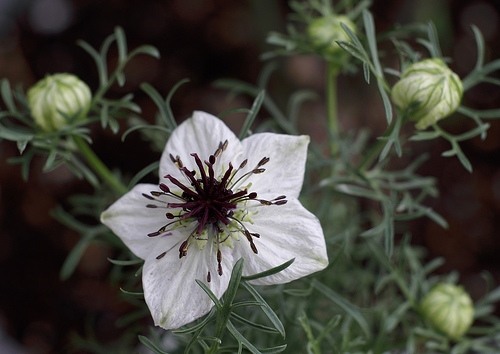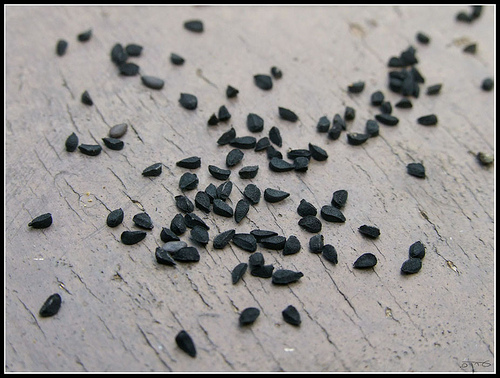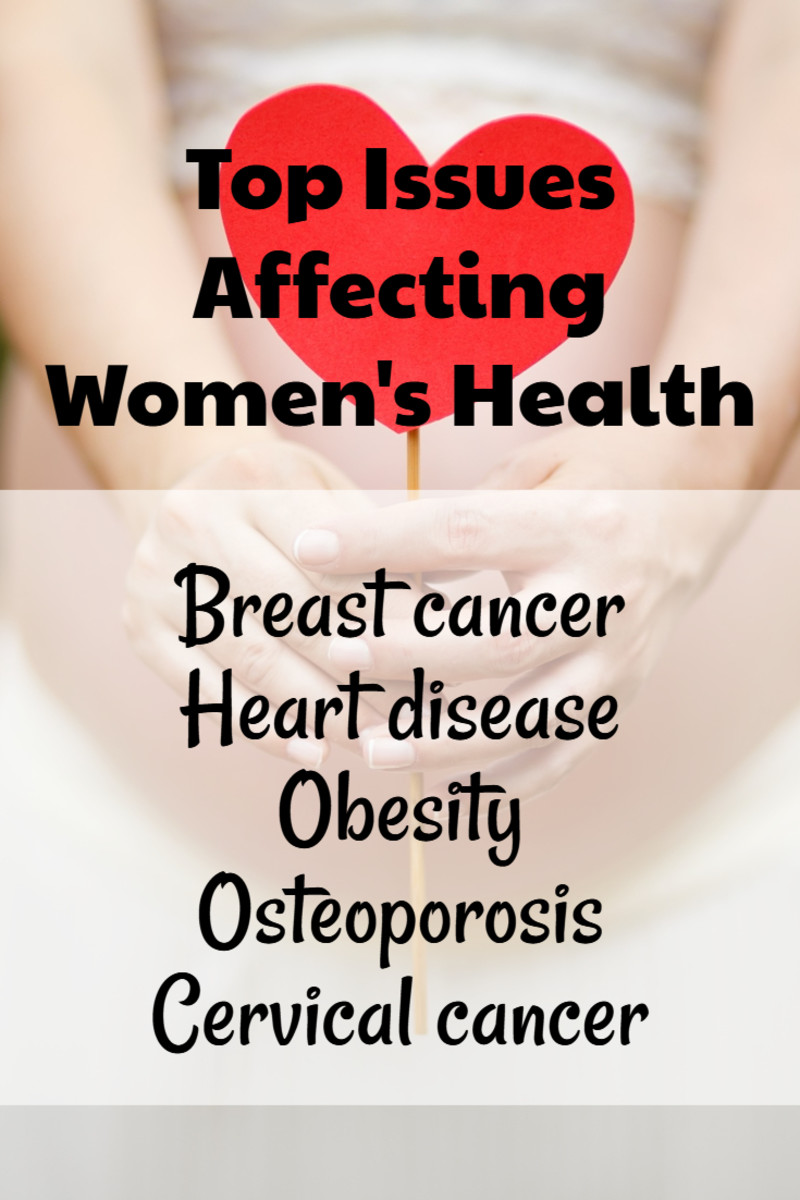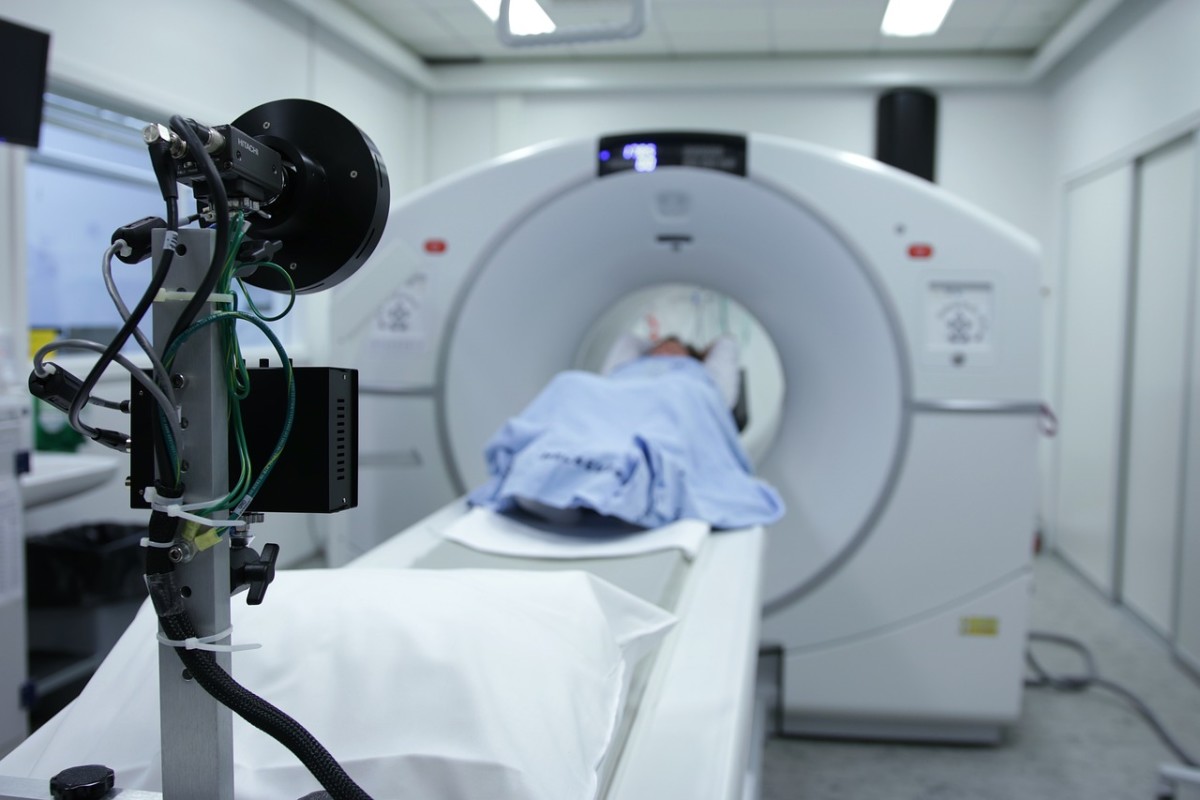Can Black Seed Oil Fight Cancer?
The History of Black Seed
Black seed is also known as black cumin. People in the Middle East have long used this pungent spice in cooking and for medicinal purposes. Historically, it's been considered a cure all for everything from cancer to infectious disease.
This seed is mentioned in the Bible, in the Old Testament prophecy of Isaiah, in which he talked about scattering "cummin."
There are reports that seeds were included in the tomb of King Tut, supposedly to help him in the afterlife. Black seeds were also found in an ancient flask in Turkey, some 2,000 years before Christ was born.
Black seeds is widely used by traditional healers in the Middle East, for its reputed ability to eradicate a wide range of disease and to alleviate chronic health conditions.
Modern scientists are studying this tiny seed and it's oil, to see if some of these claims hold up. So far, the results are very encouraging.
Black Seed Comes from the Nigella Sativa Plant

Black Seed as a Potential Cancer Treatment
There are reports on the Internet of people with cancer incorporating black seed oil into an alternative treatment regimen. But therapeutic application in a mainstream medical setting appears to be a long way off. Unfortunately, there is little financial incentive to market black seed as a chemotherapeutic agent, as it is a natural substance, and, therefore, cannot be patented.
Yet, there have been hundreds of studies conducted in various research centers. Time and again, nigella sativa has shown to be lethal to malignancies.
Black Seed has been Used Since Biblical Times
Have you ever heard of black seed oil?
Black Seed Kills Cancer Without Toxic Side Effects
One of the big problems with conventional cancer care is that the powerful drugs used to shrink cancerous tumors also poison healthy cells. These pharmaceuticals are considered carcinogenic themselves, and must be handled with extreme precaution before they are injected into a patient.
If a chemotherapy drug is accidentally spilled, there is a standard safety protocol that must be followed. Cancer units have a "hazardous spill drug kit" nearby. This kit would include goggles, protective clothing and a respirator mask, to protect workers from being exposed to the highly toxic chemicals.
Black seed, on the other hand, has a long safety record and a long history of use as a health tonic. Its side effects would include better overall health and increased resistance to infection, as opposed to nausea, vomiting, fatigue, hair loss and a reduction in the white blood cell count.
Scientists have found that black seed actually increases, instead of suppresses, the rate of bone marrow reproduction. Most modern chemotherapeutic agents hamper the body's ability to make new blood cells.
Black Cumin Seeds are a Common Middle Eastern Spice

Black Seed and Breast Cancer
One abstract of a study published on the National Institutes of Health website shows that black seed in a laboratory setting caused breast cancer sells to disassemble. The authors of this research concluded that this herb shows great promise in treating a disease that strikes more than 240,000 million women a year in the United States alone. Each year, about 40,000 women throughout America die of the disease.
Black seed could also play a role in prevention of breast cancer, according to the authors of this study, titled, Effect of Nigella sativa (N. sativa L.) and Oxidative Stress on the Survival Pattern of MCF-7 Breast Cancer Cells.
Some Common Conditions Black Seed Oil is Said to Help
Cancer
| Allergies
| Multiple Sclerosis
| Candida
|
|---|---|---|---|
A number of scientific studies have shown that black seed extract can kill cancer cells in the laboratory.
| Black seed is said to both strengthen and to regular the immune system.
| Black seed contains anti-inflammatory compounds. It is also said to be an immune modulator.
| Black seed has anti-fungal, and well as anti-bacterial properties.
|
Black Seed Oil is Often Used for Medicinal Purposes

Black Seed and Pancreatic Cancer
Pancreatic cancer does not respond well to standard treatments. The five-year survival rate is only about 4 percent, even with the full barrage of surgery, chemotherapy and radiation.
However, researchers at Thomas Jefferson University in Philadelphia, studying an extract of black seed, found that in a laboratory, this substance led to the programmed death of 80 percent of pancreatic cancer cells.
This type of cancer is now the fourth leading type of cancer that kills an estimated 34,000 Americans every year.
Black Seed Oil and Colon Cancer
A study published in the medical journal Oncology Letters demonstrated that a black seed extract called thymoquionone is a powerful antioxidant. It also demonstrated powerful cancer-fighting ability when it was given to a group of rats with metastatic colon cancer. The researchers noted that it had the ability to both diminish tumors and to prevent them from spreading.
The authors noted that this was achieved without any noticeable side effects.
Black Seed as an Overall Health Supplement
Black cumin seed oil has traditionally been used by people in the Middle East to increase their general health, and to help them combat a number of conditions, including allergies, asthma, migraines, multiple sclerosis, kidney problems, liver congestion and even Alzheimer's disease. People in this part of the world often refer to it as "the blessed seed" because it is said to have such wide-ranging applications.
Middle Easterners often combine black seed with a number of other local remedies, such as olive leaves, luffa leaves and turmeric.
Although black seed is still best known in the Middle East, it's becoming more popular in the Western World as well, thanks to the Internet. You can now find black seed in a few health food stores, as well as on Amazon, where it's sold as a dietary supplement.
Disclaimer
These statements have not been evaluated by the Food and Drug Administration (FDA). These products are not meant to diagnose‚ treat or cure any disease or medical condition.
This article is written for information and discussion purposes only. It is not intended as medical diagnosis or advice. People with health concerns should discuss them with a physician. The author is not responsible for treatment decisions or outcome.
Black seed is not recommended if you are pregnant or breast feeding.








